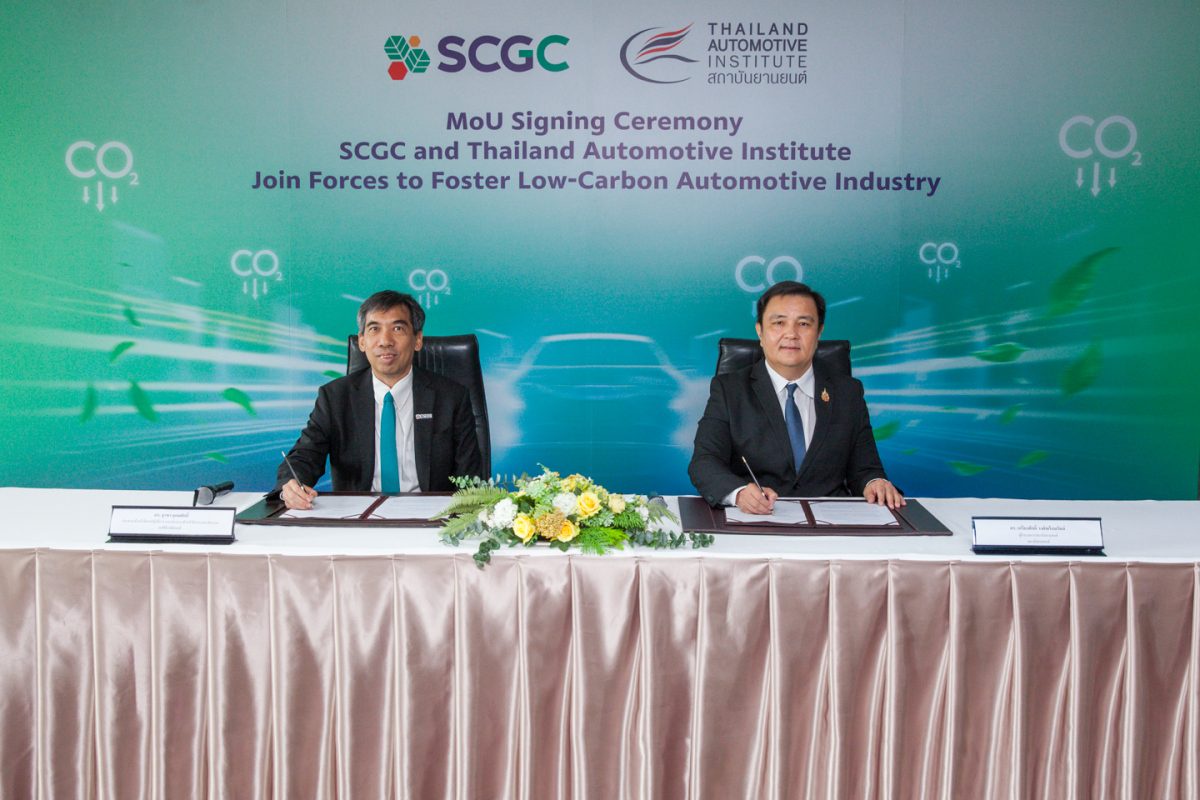- Key areas of collaboration between SCGC and the Thailand Automotive Institute include the development of green polymer innovations for automotive parts and the advancement of materials for electric vehicle (EV) batteries, supporting the growing consumer demand for electric vehicles.
- The transition to new manufacturing methods through industrial and digital solutions technology will comprehensively enhance production capabilities.
Dr. Suracha Udomsak, Chief Operations Officer and Chief Innovation Officer at SCGC, revealed, "Thailand is a significant production base for the automotive industry, ranking first in ASEAN. The development of a low-carbon automotive industry will significantly enhance our capabilities and global competitiveness, playing a crucial role in driving sustainable economic growth in Thailand. SCGC is well-versed in developing green polymers aligned with the Low Waste, Low Carbon approach. We have advanced sustainable polymer innovations for a wide range of industries, including packaging and electrical appliances, which address both functional needs and environmental challenges. Our collaboration with the Thailand Automotive Institute focuses on three key areas: 1) Developing green polymer innovations for the automotive parts industry, covering design, molding, and carbon footprint calculations; 2) Developing materials for electric vehicle batteries; and 3) Applying our expertise in Industrial and digital solutions from REPCO NEX within the SCGC business group to enhance comprehensive production capabilities. Along with promoting sustainable transportation, focusing on maximizing energy efficiency and reducing carbon dioxide emissions."
Dr. Kriengsak Wongpromrat, President of the Thailand Automotive Institute, added, "The Thailand Automotive Institute is committed to driving the automotive industry towards Future Mobility while simultaneously advancing the development of environmentally friendly manufacturing materials. Currently, Thailand's automotive industry is transitioning from traditional production methods to new manufacturing practices that prioritize energy efficiency and the reduction of carbon dioxide emissions. This shift aligns with the government's policy to promote the use of locally produced materials and components, aiming to create vehicles that are “clean, economical, and safe.” This initiative not only ensures the sustainability of the automotive industry but also contributes to improving the quality of life for the public. The collaboration with SCGC marks a positive beginning in leveraging polymer innovation and digital solutions to enhance the capabilities and competitiveness of automotive parts manufacturers in Thailand. This partnership will foster both economic sustainability and environmental stewardship, as we collectively work towards establishing a tangible low-carbon automotive industry."
Source: SCG
